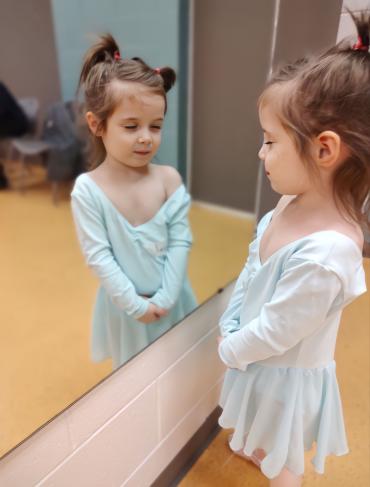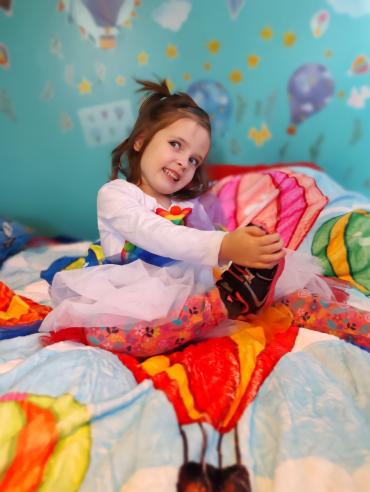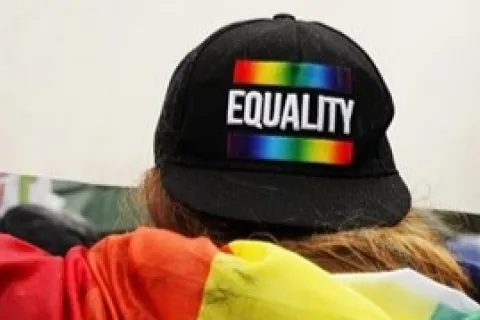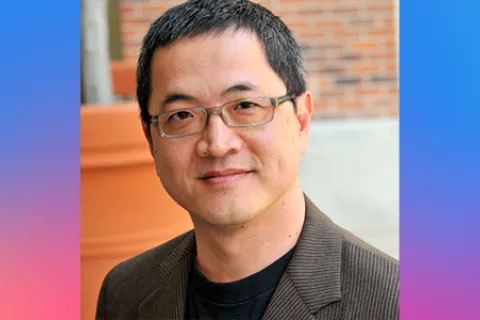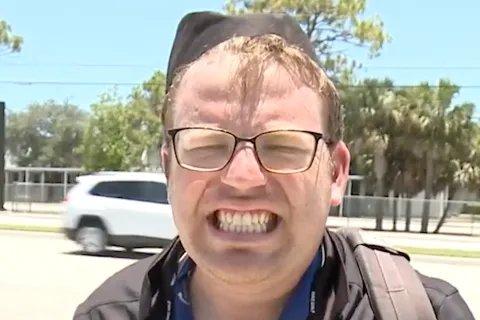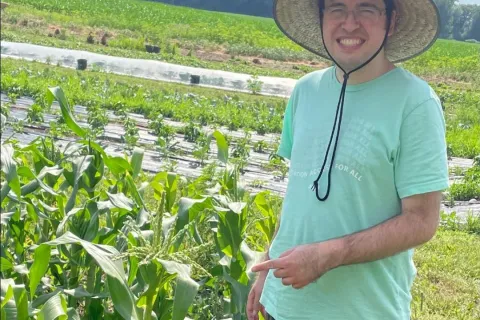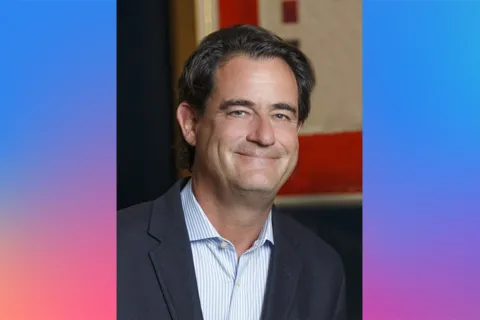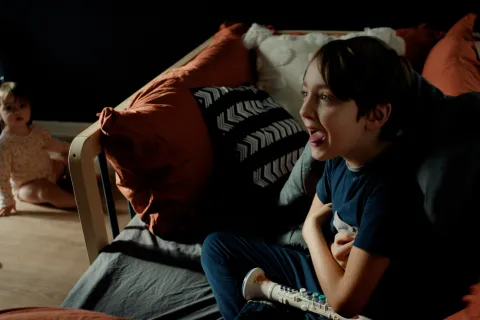Being seen as a girl with autism
Meet Ayah, age 4, who matches sounds to colors and hums all day
Ayah's mom couldn't help but notice some things were different with her daughter. She walked on her tiptoes, she couldn't tolerate other children, the pitch of her voice suddenly changed and she used repetitive language. Though autism wasn't on her mind when she sought the help of Early Intervention services, she readily took the advice to have Ayah evaluated. She was amazed the diagnosis painted a complete picture of who her daughter is and has embraced Ayah's autistic traits. Here she documents their journey and how lucky she feels that Ayah can be seen for who she really is.
At around 8 or 9 months old my baby, Ayah, could barely sit up or maintain eye contact. But she could pick out objects from flash cards. At 13 months old she couldn't walk, had only just started to crawl, and was behind in some areas, like gross motor skill and social skills. But she knew letters and numbers and we could hear her in the middle of the night counting in her crib. We thought we had a genius baby.
But the more she grew, the more we noticed some things were different. For instance, she couldn't tolerate other children, didn't initiate play, and was obsessed with numbers and letters. She had always been anxious, but her fears skyrocketed to the point of making it a challenging to understand the cause. She started rubbing her fingertips together incessantly, walking on tiptoes, and repeating words and phrases. Her vast vocabulary was impressive, but communicating certain things was not as easy. She didn't like any social environment. We realized she couldn't read emotions well.
People said both, "Every baby develops at their own time,” and “Stop bragging about how smart she is.” It was actually very unsettling. So we just kept watching her grow, and kept things we noticed within our family and our healthcare providers.
Sometime around 2.5 years old my daughter's voice pitch changed to a higher one. Meanwhile her speech and language were exploding, but it was very repetitive, more than typical for her age. She also developed a new obsession - everything construction. She could tell me a list of construction vehicles that I didn't even know existed. (That probably stemmed from spending a lot of time with her dad.) She was also very creative with acrylic paint and created beautiful paintings. At a well visit there was a question: Can your child copy a straight line, circle and triangle? My daughter couldn't. I kept wondering how these things were related, or not related to each other.
She was happy, very well regulated, but there were definitely some things that couldn't be explained away. So we started working with Early Intervention which then suggested we get our daughter an autism evaluation. At first, I thought that she couldn't be autistic. She wasn't flapping her arms, could talk very well, and had an imagination, etc. But somewhere in my gut, I knew what the result would be.
Two weeks before Ayah’s third birthday we received the diagnosis that she was on the autism spectrum. Amazingly, the report painted the most comprehensive picture of who our daughter was, including delays and strengths. I don't know what I expected, but it wasn't that. We set up an IEP meeting and it was a good start to learn about what to expect.
Around this time, she also started preschool. Within the first two weeks the teachers proudly told us that Ayah had been going down the slide, something that she was terrified of. Of course, we celebrated this achievement. But because of how hard the teacher tried to convince me that she had overcome her fears, I was very skeptical. Sure enough, within three months Ayah’s fear of slides came back even more intense.
It was one of many regressions we noticed within the first six months of school. Most noticeably, she stopped singing, something she used to love; that December she couldn't sing her favorite Christmas songs anymore. She would just repeat the first line over and over. She stopped singing the ABCs. To this day she will still only repeat the first part. (But she can write the letters and hum the songs. She hums all day long, even during conversations.) She stopped counting, reading, doing puzzles.
I kept trying to bring this up with her teachers, but they didn't listen. In the 2–3-year-old class nobody expected the kids to have the abilities that Ayah had, so it wasn't of any concern for them. Their answer to almost everything was, "Don't worry, it's age appropriate." The teachers also said how great her days were. But every single time, without any exception, Ayah came home from school absolutely exhausted, irritable and had meltdowns.
I finally received a big answer from another mom in our neighborhood who has a four-year-old girl very similar in development. The mom told me that kids on the spectrum, especially girls, will use up all their energy to try and make it through the day and then they deflate quickly.
Another big example of the real Ayah not being seen was that she was chewing her cheeks raw without her teachers noticing. When I talked to them, they said, “Ayah doesn't do that at school.” Low and behold, I got a photo album gift at the end of the school year from them and in it were pictures of her doing the most obvious cheek biting. With that I finally got the teachers to see what I was talking about and was more prepared to go into the IEP meetings for the next year. Still at the end of the school year, I actually felt defeated. I spent the summer reading up on these issues and did my own research.
Then last year something strange happened. During a conversation Ayah kept looking away and finally asked me if I had any other dresses. I tried to figure out what was going on. She told me she didn't like the sound it made. For a while I just filed it under "quirky things my daughter does." It went along with how she would play with plastic food. She would lick the toy version which seemed to trigger a response of how it should taste. It was difficult for her when she then tried the actual food and it wasn't like she expected. (Thankfully we have a range of food now that taste just like she wants it.) Then one day we were getting ready for painting and Ayah was matching sounds to colors. It was the most unusual thing I had seen her do. But over the next few months I could see that there was a shift in her creativity. She became more confident and I started to believe that she can did indeed see music in colors and vice versa.
Watch: Ayah describes the sound of colors and expresses her blended senses
Ayah is now four years old. Her experience with blended senses might turn out to be imagination. Or it might turn out to be synesthesia. I don't know. We don't mind either way. We will support her creativity as much as we can. I for one believe that it is better to support someone, no matter if we understand or not. The alternative – that I could have prevented some terrible pain by simply supporting my child – is a scary thought.
Our daughter is doing so well since we found out why she is the precious soul she is. Getting help early has made a world of difference. And as a family we are learning to read her cues and learn her language. For instance, we can tell by the sound of her humming if she is happy, scared or anxious. A friend of mine has a four year old autistic daughter as well. She often calls our kids the epitome of girls who would have fallen through the cracks 10 years ago. With research has come greater understanding and I feel lucky that my daughter was seen, despite the absence of the stereotypical flapping, which she actually started a few months ago. Her signs of autism are very noticeable now – if you know to take a closer look.
I often see the contentious debates online between autistic individuals and parents of kids on the spectrum. I don't get angry; I don't get into debates about my daughter's autism diagnosis. But when I look at my child I have empathy for the 20 year old who wants to be seen, or the young autistic individuals who are left fending for their care, their needs, their accommodations. I do see the trauma, their helplessness. I realize I can help by supporting my daughter and fundraise for research. Listen but not stay silent. That's what my daughter has taught me. To listen and learn how I can be a better advocate.

